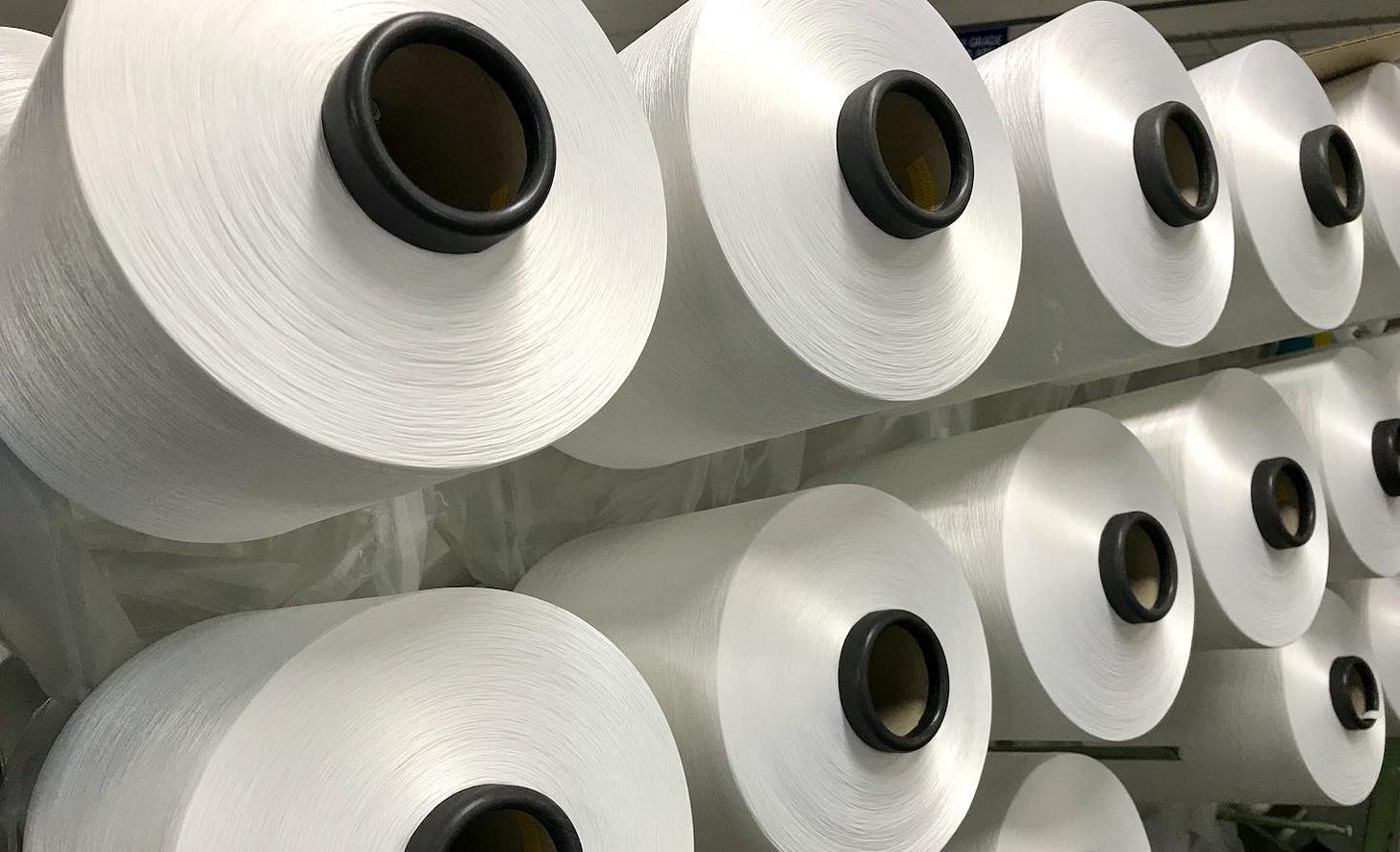𝗪𝗵𝘆 𝗥𝗲𝗰𝘆𝗰𝗹𝗲𝗱 𝗣𝗹𝗮𝘀𝘁𝗶𝗰 𝗕𝗼𝘁𝘁𝗹𝗲𝘀 𝗠𝗶𝗴𝗵𝘁 𝗕𝗲 𝗙𝗮𝘀𝗵𝗶𝗼𝗻'𝘀 𝗗𝗶𝗿𝘁𝘆 𝗦𝗲𝗰𝗿𝗲𝘁
you weren't expecting this.
For years, the fashion industry has touted recycled plastic bottles as a beacon of sustainability.
Clothing giants proudly displayed garments made from "eco-friendly" recycled polyester derived from plastic bottles.
But a recent move by H&M suggests the flawed nature of recycled plastic apparel:
👉 Transforming plastic bottles into wearable polyester requires significant energy. This negates some of the environmental benefits, raising questions about the true sustainability of the process.
👉 Recycled bottles used for clothing production are lost from the established bottle-to-bottle recycling loop. This disrupts existing systems and potentially reduces overall plastic recycling efficiency.
👉 Environmental regulators are raising concerns. The European Union's Green Claims directive frowns upon bottle-to-textile recycling as it competes with the more sustainable closed-loop bottle recycling system.
𝗔 𝗻𝗲𝘄 𝘄𝗮𝘃𝗲 𝗼𝗳 "𝗰𝗶𝗿𝗰𝘂𝗹𝗮𝗿" 𝘁𝗲𝘅𝘁𝗶𝗹𝗲 𝗿𝗲𝗰𝘆𝗰𝗹𝗶𝗻𝗴 𝗶𝘀 𝗴𝗮𝗶𝗻𝗶𝗻𝗴 𝘁𝗿𝗮𝗰𝘁𝗶𝗼𝗻.
👉 This innovative approach focuses on turning used clothing and fabric scraps into new polyester fibers.
👉 This keeps textiles in use for longer periods, reducing waste and minimizing the environmental impact of the fashion industry.
👉 H&M's recent $600 million investment in Syre, a Swedish startup pioneering chemical recycling technology for used textiles, is a bold move.
👉 Syre's technology breaks down used clothes and fabric scraps into reusable polyester building blocks, potentially revolutionizing sustainable fashion.
H&M isn't alone.
Fashion giants like Zara (Inditex) and Puma are also exploring textile-to-textile recycling solutions.
This industry-wide shift signals a growing commitment to more sustainable practices.
👉 Consumers are increasingly demanding eco-friendly clothing options, pushing brands towards sustainable practices.
👉 Governments are also playing a role.
The EU's Extended Producer Responsibility (EPR) regulations hold brands accountable for the environmental impact of their products, further incentivizing a shift towards sustainable materials like recycled textiles.
The story of H&M's shift away from recycled plastic bottles for clothing is a wake-up call for the fashion industry.
It highlights the need for innovative solutions that address the environmental impact of clothing production.
The rise of circular textile recycling offers a glimmer of hope.
Thoughts? 👇
______
I write detailed breakdowns of the sustainability industry's darkest secrets.
You will miss out on a lot if you don't subscribe (free): sustain.cerclex.com



